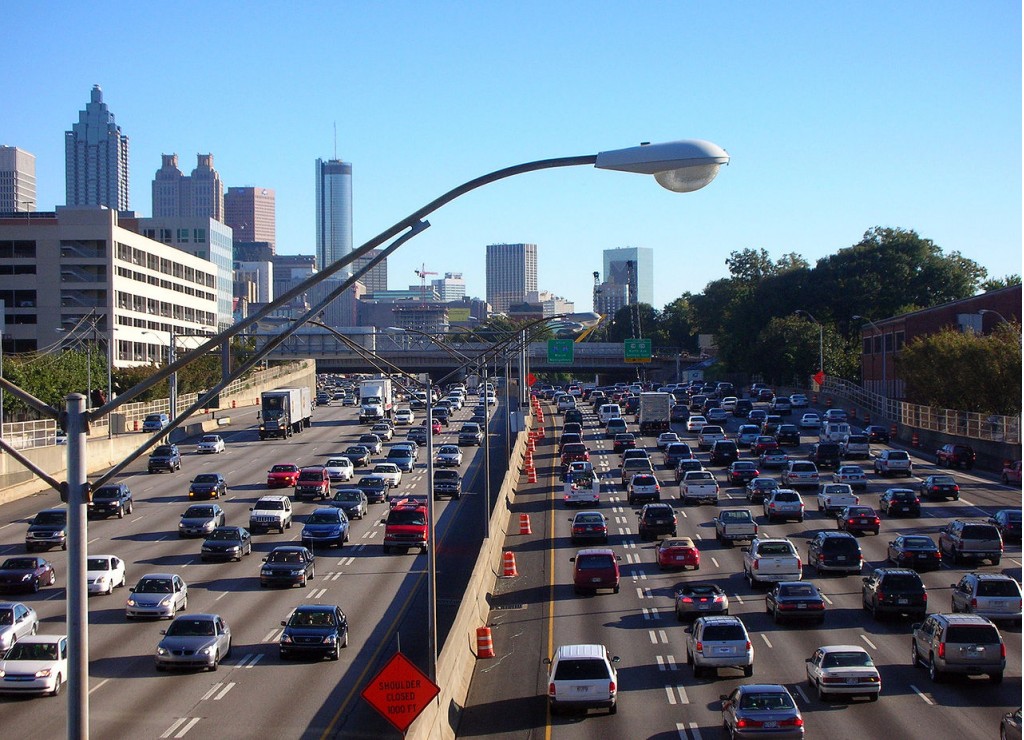Long charging times and lack of available charging stations remain some of the biggest obstacles to widespread electric-car adoption.
But what if the charging stations were virtually everywhere, and drivers didn't have to stop to use them?
That's essentially the concept behind an "electric motorway" that is planned to begin testing in England.
DON'T MISS: Bosch Offers Wireless Charging For Nissan Leaf, Chevy Volt (Jun 2013)
It will use wireless hardware embedded in the road surface to allow people to charge as they drive, according to BBC News.
The government agency Highways England says it has already completed a feasibility study, and will now ask companies to tender bids for prototype systems.
Officials hope to begin trials in 2016 or 2017--but not on public roads.

Traffic in Atlanta, Georgia during rush hour (via Wikimedia)
Details of the prototype system won't be known until a contractor is selected, but wireless charging has already been demonstrated by a handful of companies--and is even getting a limited degree of real-world use.
In 2013, the South Korean town of Gumi installed wireless-charging hardware in 7.5 miles of road, for use by buses.
The system uses magnetic cables embedded in the road to generate electromagnetic fields, which are harnessed by a coil mounted on the undersides of specially-equipped vehicles.
ALSO SEE: Solar Panels On Dutch Bike Lane Produce More Power Than Planned
Last year, the English city of Milton Keynes also instituted wireless charging for its buses, although this installation requires vehicles to remain stationary.
As far as getting power to an electrified roadway, some creative solutions have already been proposed.
U.S.-based Solar Roadways and Dutch company SolaRoad believe solar panels built into roads could generate meaningful amounts of power.

HaloIPT wireless charging
However, it's unclear whether solar panels and wireless charging can practically occupy such close quarters--or whether either technology can stand up to the long-term abuse road surfaces withstand.
Highways England plans to announce more details--including a location for the tests--once a contractor is selected.
MORE: Volvo Completes Wireless Electric Car Charging Study; Research Continues (Oct 2013)
It expects the testing to last 18 months, after which a determination will be made about whether to push for real-world use of the technology.
Meanwhile, Highways England has already committed to installing charging stations at 20-mile intervals on the nation's highway network.
Of course, drivers will have to pull off the highway to use those.
[hat tip: Randall Hamlet]
_______________________________________________
Follow GreenCarReports on Facebook, Twitter, and Google+.












